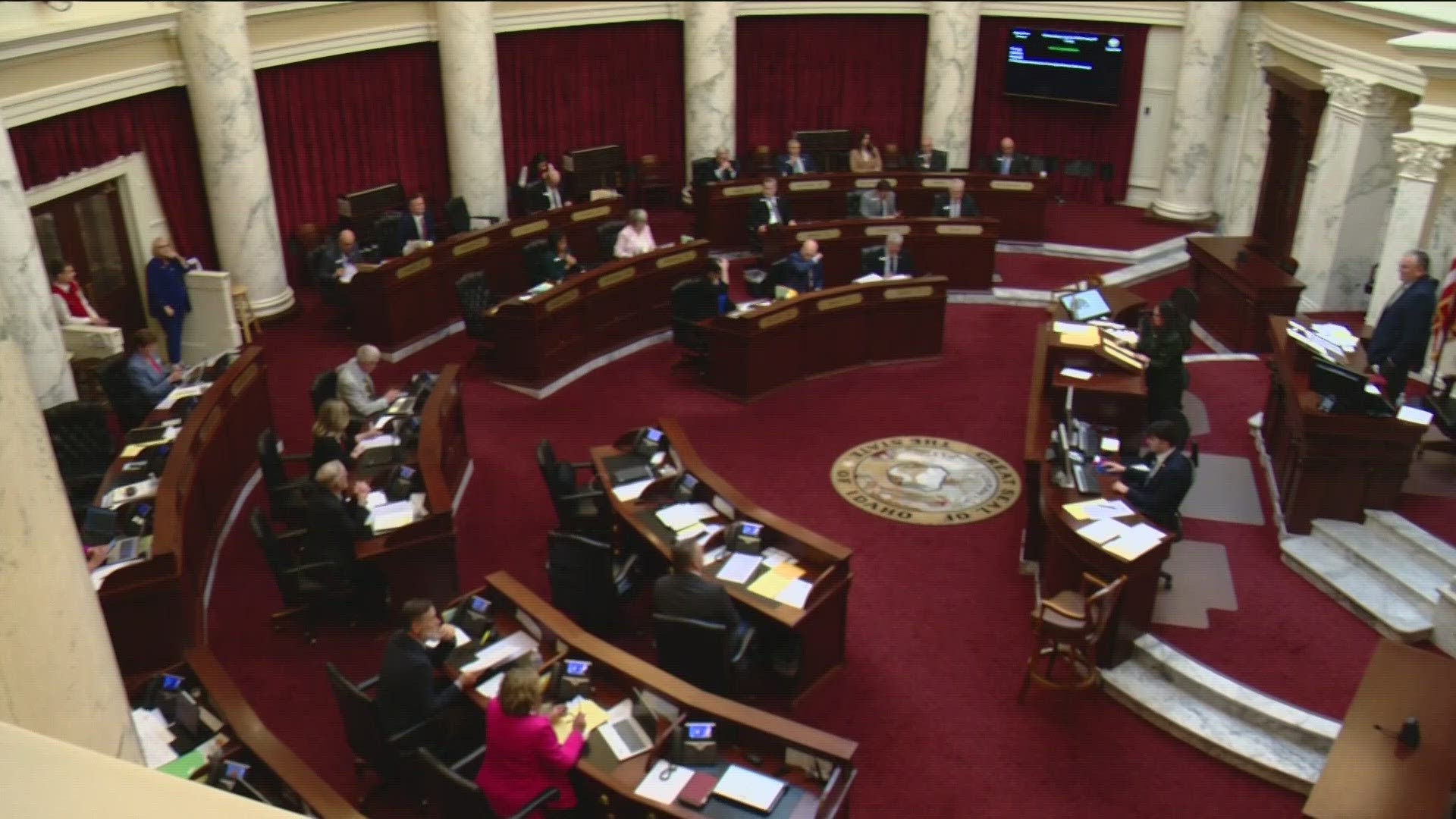BOISE, Idaho — State agencies are racing to beat a Friday deadline to keep alive thousands of administrative rules after the House of Representatives killed a bill reauthorizing them last month.
Republican Gov. Brad Little directed state agencies to submit temporary and pending rules by Friday to be vetted by the Division of Financial Management before publication in a special Idaho Administrative Bulletin on June 19.
A 21-day public comment period follows before the rules can attain temporary status and remain in effect. Some agencies are also planning to hold public hearings beyond the 21 days.
"We look forward to robust engagement this fall," said Alex Adams, administrator of the Division of Financial Management.
Many state agencies are well into the process, and on Wednesday the Oil and Gas Conservation Commission in a special meeting voted 4-0 to authorize the Department of Lands to initiate temporary rulemaking on oil and gas regulations.
The agency plans to cut about a dozen rules it says are redundant in accordance with Little's red tape reduction act executive order. Other agencies said workers are going through rules.
"I think we have more than adequate rules to protect the mineral interest owners and the operators in the state," said Commissioner Jim Classen after the oil and gas commission vote. "But like anything over time, they need to be reviewed and altered as conditions change."
Oil and gas rules run about 58 pages of the 8,200 pages of administrative rules containing 736 chapters that touch on just about every aspect of daily life. Those rules, some going back decades, come from roughly 20 executive branch departments, depending on how they're defined, containing more than 60 entities with boards, councils and commissions that are all part of the rules process. Adams said 77 rules review officers have been appointed by various state entities to report to him.
"It's been relatively smooth sailing," Adams said. "We're working hard to make sure citizens maintain confidence in state government."
The Idaho Department of Environmental Quality has 25 chapters in the rules book and has been given until May 16 to turn in its proposed temporary and pending rules because that's when its board had previously scheduled a meeting.
"We'll let DFM (Division of Financial Management) know what happened during the board meeting," said Barry Burnell, the Department of Environmental Quality's Water Quality Division administrator.
The rules being reviewed by state agencies include such things as protecting consumers, homeowners, the environment and school children. They range from hunting and fishing licenses and seasons to licensing for health care professionals and construction contractors. They are mostly products of the state's obscure but important negotiated rulemaking process that involves public participation.
Jeff Anderson, who oversees both the Idaho Lottery and Idaho State Liquor Division, said a 30-year-old rule involving a potential lottery TV game show that never resulted in a game show will be eliminated. But otherwise, he said, "there's nothing that's going to be a showstopper from my agencies."
The bill reauthorizing the rules died a complicated death when the Legislature wrapped up business on April 11 with open acrimony between lawmakers, leading to a number of bills important to the other side being killed.
One was the administrative rules bill, which usually has little fanfare. Essentially, many members of the House were irked that proposed administrative rules from executive branch state agencies that the House voted to revoke survived when the Senate gave its approval.
The House tried and failed several times to change that process, but the Senate refused to give House members unilateral authority to kill administrative rules.
Ultimately, the House killed the administrative rules bill altogether on the last day of the legislative session, setting up the current scramble among state agencies.
All 8,200 pages of rules, or however many are left after cutting go before the House and Senate early next year. It's not clear how that will play out with those two chambers. Leadership in the House and Senate planned to meet over the summer to discuss options.



